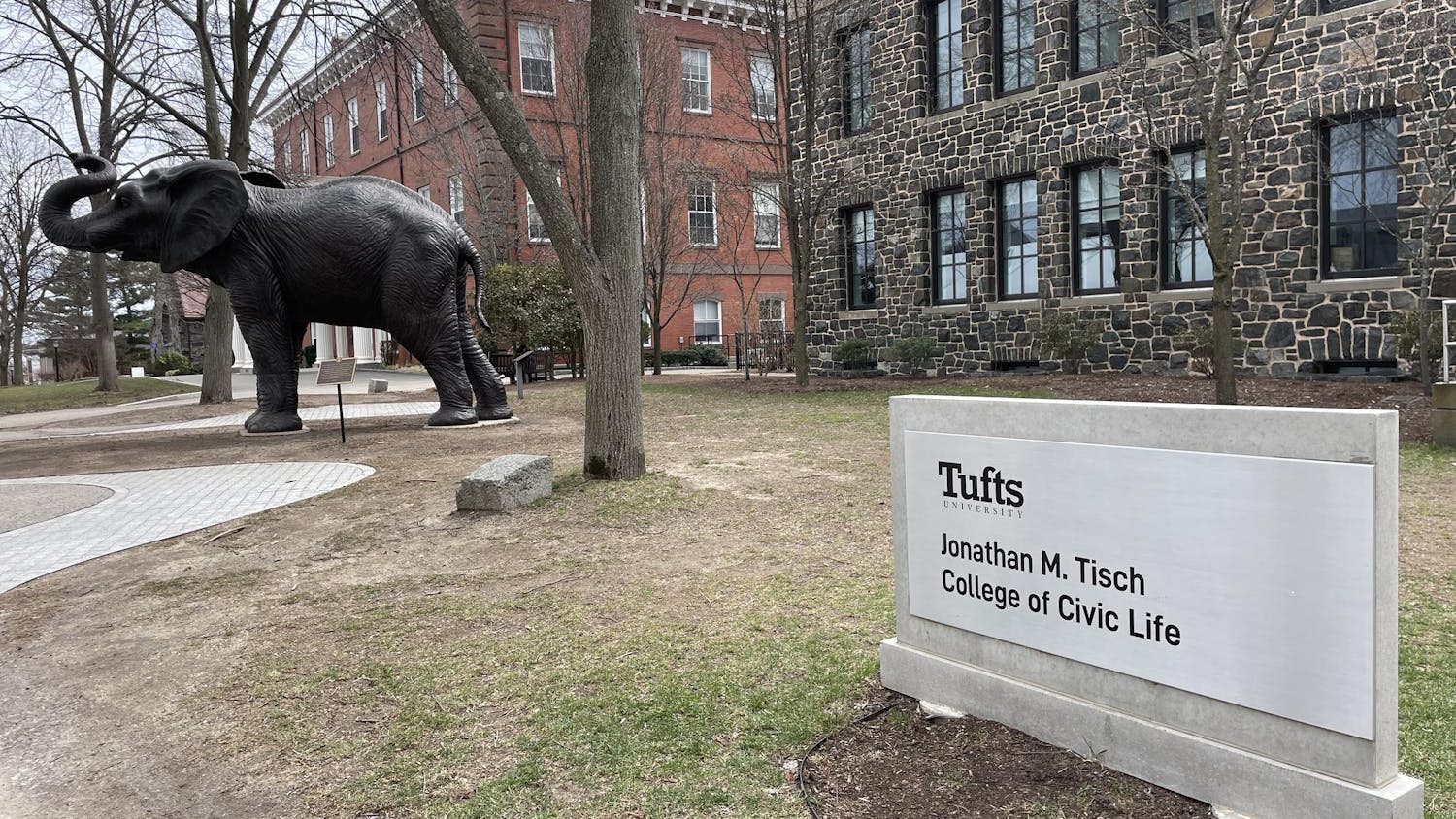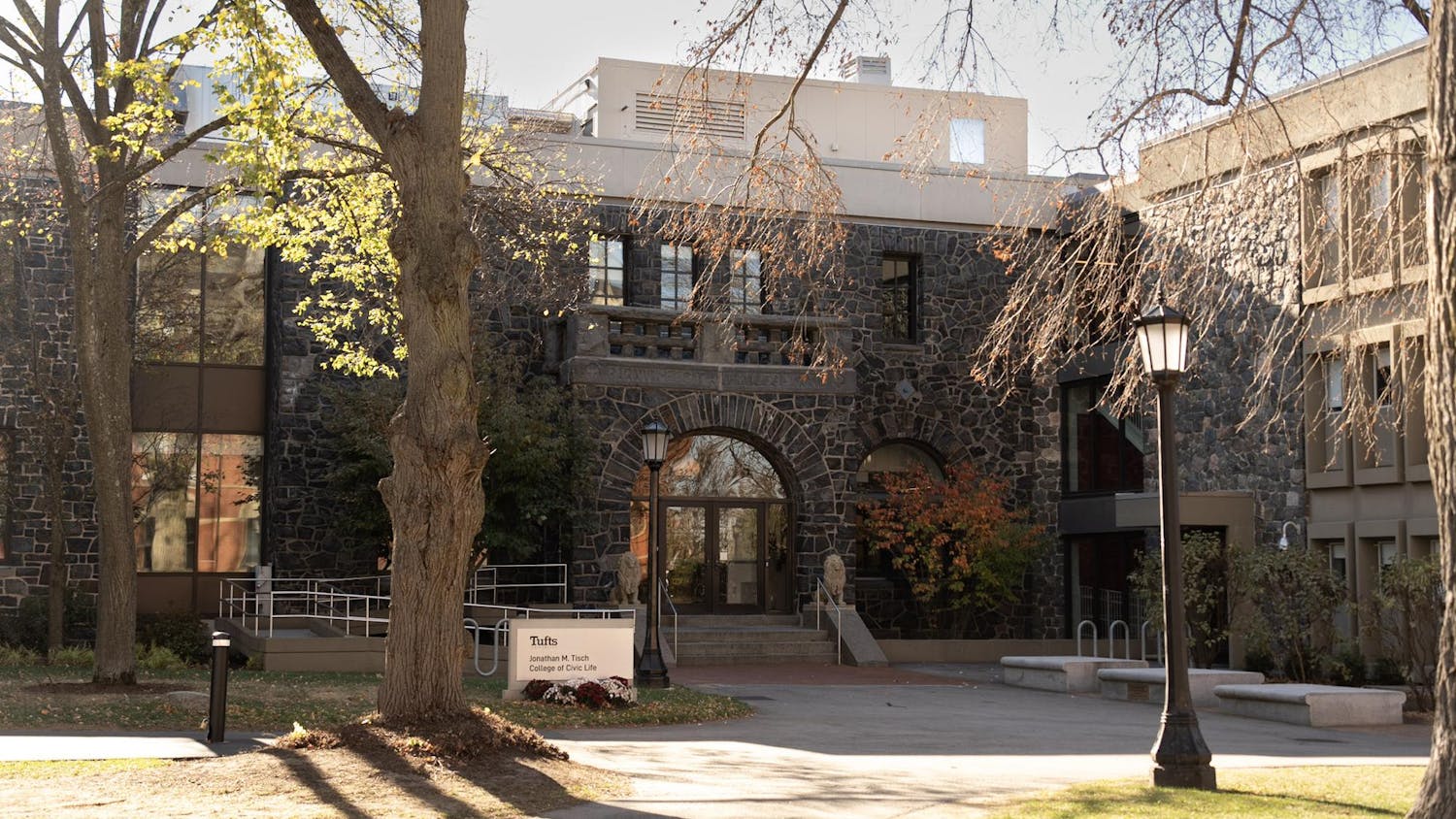The Global Poverty Project last night brought its "1.4 Billion Reasons" presentation to Tufts to describe the current extent of global poverty and present practical tools for addressing it. The event was co-sponsored by Tufts Engineers Without Borders and Tufts Timmy Global Health.
The Global Poverty Project aims to eradicate extreme global poverty within a generation by teaching techniques for effective activism to people around the world.
"[‘1.4 Billion Reasons' is] meant to bring awareness and teach skills to student groups and other leadership groups about fighting global poverty," sophomore Brooke Schuman, a member of the Engineers Without Borders: Uganda group, said.
"We hope that by bringing this presentation, it will bring awareness both for the work that we do and also the larger outstanding goal of understanding how 1.4 billion people live in the world," Tufts Engineers Without Borders President Scott McArthur, a senior, said.
"1.4 Billion Reasons" was presented by Tyler West and Dan Skallman, Global Poverty Project Fellows who are touring campuses and communities across the country.
The presentation interspersed slides displaying graphics and informational points with video testimony from impoverished individuals and experts in related areas and focused on answering questions related to defining extreme poverty, the barriers to ending poverty, ways to address poverty and why it is an important issue.
West in his presentation explained that extreme poverty is not the result of a lack of resources, but rather caused by the unequal distribution of the plentiful resources that do exist. These inequities are perpetuated within regions and across generations.
"Tonight 1.4 billion people will go to bed hungry, but there is enough food in the world to feed everyone 1.5 times over," West said. "Extreme poverty can become a trap that doesn't let people escape."
The World Bank in 2005 defined extreme poverty as living on less than $1.25 per day.
Skallman described the role of aid in alleviating poverty, emphasizing that the best form of aid aims for long-term, self-sustainable development in areas like education and infrastructure. A video clip explained that aid should be seen as an investment in our national security, not a gift.
"Ending extreme poverty is extremely important to helping our own economy," Skallman said.
The overarching message of the presentation was hopeful, pointing out that we already have the resources and knowledge to make significant progress toward eradicating global poverty.
The organizers of the event hoped that it would help students conceptualize the reality and scale of global poverty, while providing them with practical tools to bring back to student groups.
"When you talk about global poverty, it's so hard to imagine what that is … It's never something that you can really point at," Advocacy Chair for Tufts Timmy Global Health Lucia Smith, a junior, said. "With the 1.4 Billion Reasons project, it will show you some of the reasons why you should care about it."
The organizers of this event believe the presentation is well suited to Tufts because of the many student groups that address international issues related to poverty.
"Many student groups do something like this and would be able to apply these skills in their projects," Tufts Timmy Global Health President Molly Goodel, a junior, said.
The response from attendees was positive overall.
"It was engaging and inspiring," Leah Cohen, a sophomore, said.
"It's the sort of presentation [that] makes you want to get up and do on-the-ground work but also gives you concrete tools to make a difference in ways that are practical for a college student," Becky Allen, a sophomore, said.
The event organizers received support from the Global Health Network under the supervision of Professor Edith Balbach, the director of the Community Health Program at Tufts, and the Jonathan M. Tisch College of Citizenship and Public Service, according to Smith.
"[Tisch College has] been incredibly supportive," she said. "They've been the catalyst for helping us all put it together, in terms of funding, support, and advising."
Schuman took the lead in bringing the Global Poverty Project to Tufts and initiated the close collaboration between the student groups.
"This type of collaboration is something that will definitely continue," Goodell said.
The Global Poverty Project emphasizes a community-based approach to hands-on work.
"Part of it is you need to create a foundation for your program for it to be sustainable," Schuman said. "Something like this program is going to bring awareness to that fact that projects need to develop relationships with communities."





